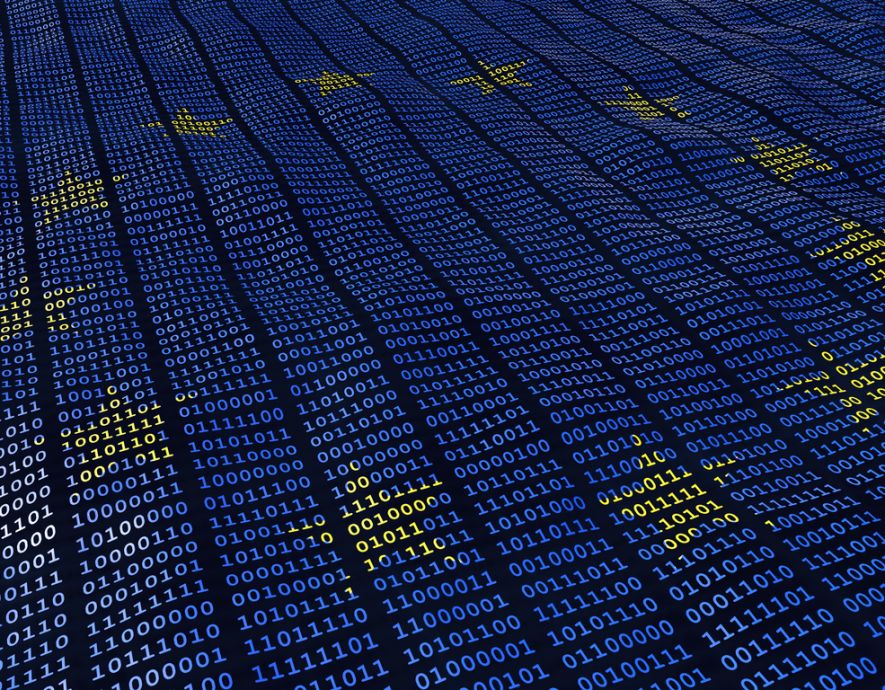
- Home
- Digital transformation
- How do we facilitate the building of datacenters in France?
How do we facilitate the building of datacenters in France?


The French economy needs more datacenters. Despite the measures proposed by the French government to promote their construction, industry representatives are arguing for the implementation of a national strategy that would take a leaf out of other European countries’ book.
On February 18, 2019, the French Minister of the Economy, Finance and Industrial and Digital Sovereignty, Bruno Le Maire, presented a new economic objective: to make France the European country with the most datacenters. This is a significant (albeit belated) ambition, considering France’s current position on the market, which will reach 183 billion dollars by 2027, compared to 57 billion dollars in 2019 (according to Allied Market Research).
Today, France has fewer datacenters on its soil than other European countries, including the leaders in the area (the UK, Germany and the Netherlands). According to an expert, Baxtel, there are 109 datacenters in France, compared to 138 in the Netherlands. This gap is surprising considering the differences in surface area (41,000 square km² in the Netherlands compared to 672 000 km² in France), population density (419 people per km² compared to 119) and the geographical situation, which is to France’s advantage: 55% of the Netherlands’ territory is at risk of flooding and 26% is below sea level.
The technological and economic issues of datacenters
Known to the general public for their imposing cabinets (called “racks”) that house servers, datacenters are not only designed to host websites. The data generated when one uses a connected computer or smartphone transits there for processing before being sent back. This technology, called “edge computing”, gets its name from the fact it does without servers (the data thus stays on the “edge” of the network) and is necessary for a “smart city” kind of infrastructure. Datacenters also host locally-generated data processing or the carrying out of Cloud-based online operations.
Datacenters also foster the creation of “data spaces”. These are digital environments in which companies share (with their consent) data generated by their business in order to pool research and development efforts and costs, particularly by using self-learning solutions. The French host, 3DS Outscale, which works with AGDataHub to analyze data from farms, is one of these.
Building a datacenter is also good for the economy of a given territory. According to a study by the Danish consulting firm Copenhagen Economics, establishing Google (now Alphabet) datacenters in the Agriport and Groningen sites in the Netherlands added a total of 3.6 billion euros to the Dutch gross domestic product between 2014 and 2019.
In order to promote the construction of datacenters in France, Bruno Le Maire suggested in 2019 that the domestic tax on final electricity consumption (TICFE) be reduced. It would go from 12 euros per consumed megawatt-hour to 50 eurocent, cutting down on fixed costs for providers established in France. This tax measure, the implementation of which was delayed by the 2020 health crisis, is part of the 2020 budget law. However this aid is conditional and the recipients of the reduced tax rate will have to take sustainable measures (energy management system, reuse of the heat produced by the datacenter, compliance with water consumption levels).
The incentive has nevertheless been diminished by rising energy prices, which challenge the economic relevance of a reduced tax on a resource that has tripled in cost. Emmanuel Macron’s announcement of an “energy restraint plan” on July 14, 2022, leads us to believe this measure will have to be strengthened to have the desired effect.
Which measures can promote the growth of datacenters in France?
According to French players in the data hosting sector who make up the France Datacenter organization, this measure is not enough. More than financial aid, a “strategic plan” is expected. This would lift constraints on the growth of datacenters in France, such as administrative red tape and labor shortage. In February 2022, France Datacenter presented seven proposals to help grow this sector. In addition to the creation of a General Secretariat of Digital Infrastructure (which would hold a yearly conference on the issue), they also want the development of regional urban programs, as well as a reduction of the mandatory regulations and administrative procedures required to build and operate a data storage center with dematerialization possibilities.
In Germany, a policy to reduce energy consumption
In Germany, the strategic vision for the future of datacenters is less about their growth than it is about their ability to function sustainably. It was presented in a document titled “Agenda for an eco-friendly digital policy” in March 2020. Outlined by the Federal Ministry of the Environment, this strategy relies on the assessment that there are no environmental protection requirements with which hosts must comply (the only policy in this matter is the decision made in February 2020 by the European Union to ensure datacenters no longer emit CO² by 2030). To fill this gap, the German government is working on several projects, such as KPI4DCE, developed by the Federal Agency for the Environment, which aims to establish a method to measure and report the energy consumption of each datacenter set up in Germany.
Authorities also announced in this document that they are relying on independent third party recommendations, those of the Bleuer Engel (Blue Angel) certification agency. Since 2011, this organization has been interested in the environmental footprint of datacenters. In order to implement the agenda, Bleuer Engel will publish labels that serve as references for the following issues: the datacenters’ ability to save energy, to protect the climate (by emitting very little CO²), as well as the eco-friendly nature of the software and hardware used .
This strategy was picked up by other German players. In July 2022, the city of Frankfurt presented an urban planning outline limiting the construction of new datacenters by specifying that only projects with a label from the Bleuer Engel organization would be granted a building permit. This decision is not without consequences for the data storage market. As the seat of Europe’s largest internet exchange point, the DE CIX provides one of a kind connection quality. The city thus has sixty or so data storage centers! Their anarchic growth did stir controversy among the residents, who saw these facilities consume considerable amounts of energy while restricting the available buildable area. To solve this problem, the new strategy plans on not only restricting new construction sites to a few areas but also providing zero greenhouse gas emissions heating by setting up an urban heating program that reuses the heat produced by the datacenters.
While this strategy’s measures may seem restrictive, they allow hosts to be competitive while consuming less energy, which is a particularly costly resource in Germany: in December 2021, a megawatt-hour cost 317 euros (compared to 254 euros in the UK, 247 euros in the Netherlands, and 125 euros in France). German policy on this issue illustrates the following point: the hosting sector will not grow (in Europe) without considerably improving its ecological footprint.
In the United Kingdom, a deal to make datacenters “green”
The data hosting sector in the United Kingdom began taking environmental issues into consideration after industry players came together on the matter. The result was a Climate Change Agreement that consists in a tax reduction if a level of energy efficiency is achieved before a deadline. This agreement was negotiated between the Department of Energy and Climate Change and the TechUK organization (which represents businesses in the digital field, of which British datacenters are a part) in 2013 for an 8-year period, from 2014 to 2023. In 2020, two additional years were added, which prolonged the agreement to 2025. The only condition is achieving results expressed as a Power Usage Effectiveness indicator. This policy has been very effective: on the whole, British datacenters have reached initial objectives two years early.
It also has the added benefit of not making environmental protection another expense for companies that run datacenters. Finally it makes feedback possible by giving the players concerned the opportunity to explain the methods used to limit their greenhouse gas emissions, as well as the difficulties encountered.
Moreover, TechUK is one of the organizations affected by the Adaptation Reporting Power program. This program, set up in 2008 following the Climate Change Act, makes it mandatory for organizations and public institutions, as well as private sector companies, to report every five years to His Majesty’s Government (more precisely the Ministry of Environment and Agriculture) the threats caused by climate change (natural disasters, risk of business disruption) and the methods adopted to prepare for it. TechUK thus presents the most vulnerable and the most exposed infrastructure, as well as adjustment measures taken by the hosts.
Across the Channel, taking into account environmental issues is therefore not limited to the implementation of regulations imposed by a political authority to which one would have to submit. First and foremost, it is the fruit of a partnership between public bodies and civil society (or third sector) members, with their own means and capacity to act. Through a partnership between public authorities and hosts, each party thus commits to a win-win relationship.
In the Netherlands, an active partnership between businesses and public authorities
The land use planning strategy (Nationale Omgevingsvisie), outlined by the Dutch Ministry for Home Affairs in 2019, provides guidelines for the construction of datacenters up until 2030. In particular, the latter will have to be powered by renewable energy and included in a heat-sharing program with an urban heating network.
To facilitate this strategy’s implementation, the Dutch Data Association, which represents hosts established in the Netherlands, acts as an intermediary. Created in 2014, this organization dynamically promotes industry interests, whether to attract foreign investors or implement measures taken by the executive power.
In 2020, this organization drafted a practical guide to help datacenter managers present energy saving measures (and results) made mandatory the year before. This guide was drawn up with the help of NLDigital and the Dutch Business Agency (an equivalent body to the French Directorate-General for Enterprise) to provide a detailed explanation of the information required and how to obtain it. The DDA is also behind the Green Datacenter Platform network, which gathers best practice in involving datacenters in the energy transition since 2017, and in publishing the “Datacenter & Residual Heat” report the following year. The report focuses on the requirements to meet in order to achieve reuse of heat produced by the servers.
In short, the strategic vision mentioned above will rely on a realistic representation of a territory and the exchanges between its inhabitants and the organizations established within it. This representation is born of a strategy that provides answers to issues (whether economic, political, environmental) by reaching specific objectives. In order to do so, players will be identified and given the means to report on results achieved with the help of indicators that will be as precise as possible. These objectives will vary according to the geographical, political or economic characteristics of the countries concerned, and will be pursued on different levels. Be that as it may, they demonstrate that the construction of datacenters is part of a plan that is meant to ensure not economic growth but balance between various bodies sharing a common national territory. And a common European territory.
the newsletter
the newsletter



